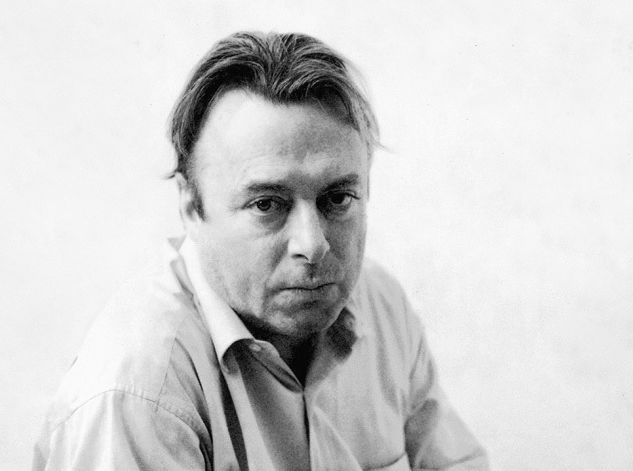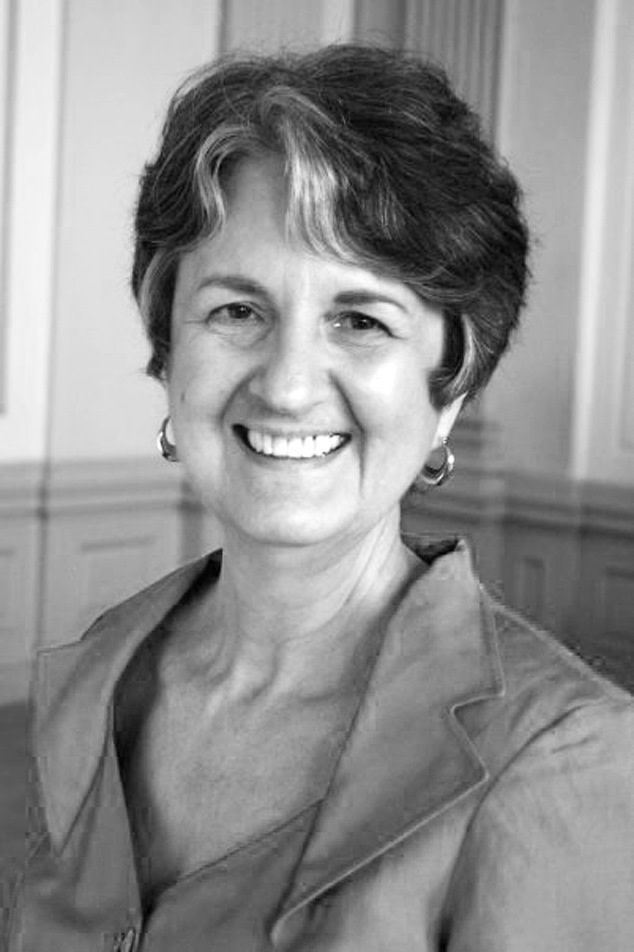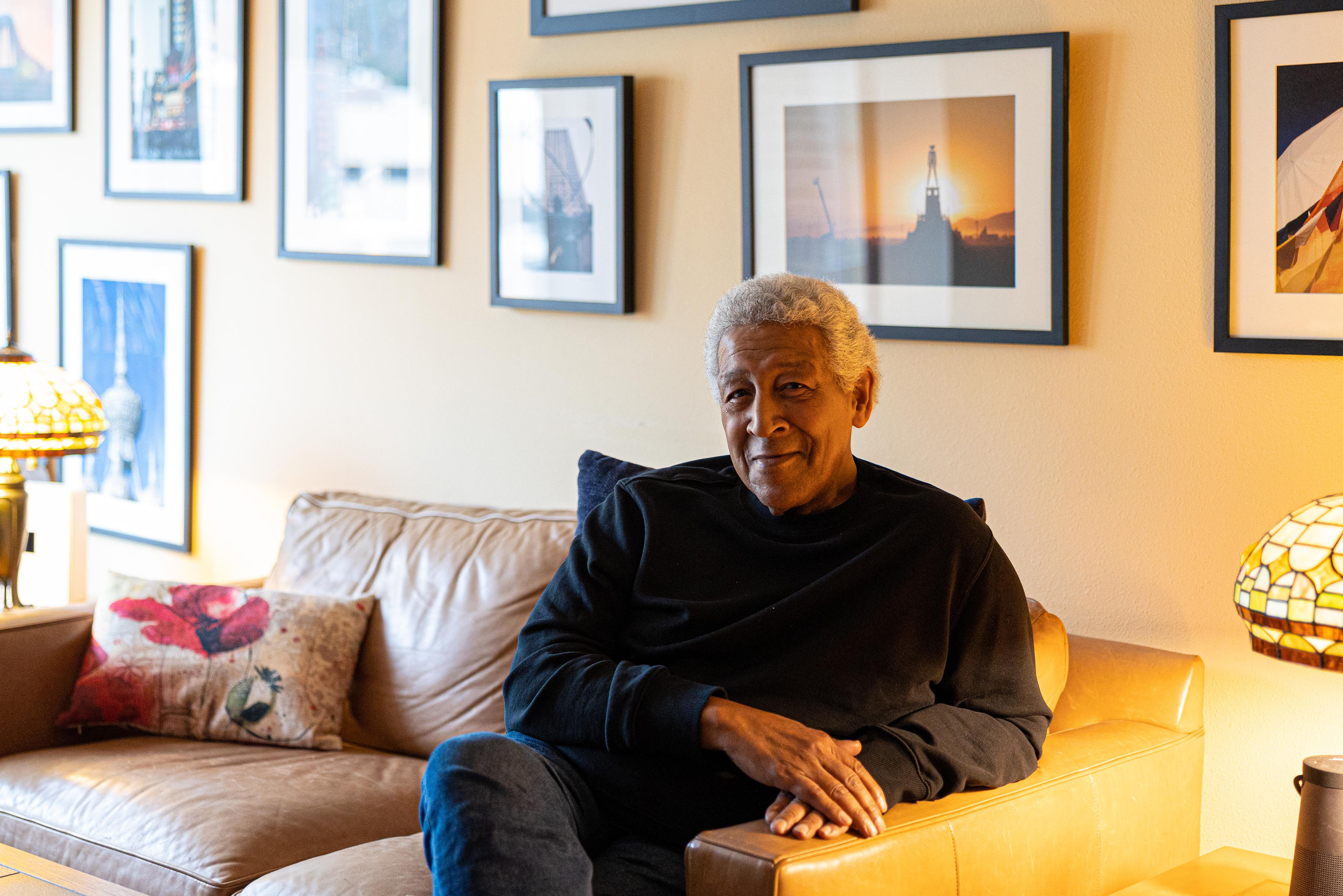Questions of Faith

Hitchens appears at the Arlene Schnitzer Concert Hall as part of the Literary Arts’ Portland Arts and Lectures Series on January 5th.
Christopher Hitchens’s 2007 book God Is Not Great: How Religion Poisons Everything has made him arguably the nation’s most notorious atheist. Already renowned as a political columnist for Vanity Fair, Slate, and other magazines and known for his frequent punditry on the political TV circuit, Hitchens’s barbed manifesto against religion has earned him debates across the country, often with the very fundamentalist believers his book attacks.
But as a precursor to his upcoming January 5 appearance at the Arlene Schnitzer Concert Hall, Portland Monthly invited Hitchens to an encounter more befitting the Rose City: a conversation with a liberal believer—Marilyn Sewell, the recently retired minister of the First Unitarian Church of Portland. A former teacher and psychotherapist and the author of numerous books, Sewell, over 17 years, grew Portland’s downtown Unitarian congregation into one of the largest in the United States.
Marilyn Sewell: Your book God Is Not Great is a sweeping indictment of how religion has perpetuated war, exploitation, and oppression throughout history. What inspired you to turn from critiquing politics to critiquing religion?
Christopher Hitchens: My political life has been informed by the view that if there was any truth to religion, there wouldn’t really be any need for politics. A crucial element in the way I write, as well as what I write about, has been informed by my atheism. Why this book at this time? By the early part of this century, I became convinced that religion was back in a big way with the parties of God—as they dare call themselves—not just in Iran and among Al Qaeda and Hezbollah, but with Messianic Jewish settlers trying to steal other people’s land in the name of God to try and bring on Armageddon with help from Christian forces in the United States. These forces overlap with the Christians who want pseudoscience taught to American children with taxpayers’ money and with the Vatican saying, “Well, AIDS in Africa may be bad, but condoms would be worse.” I thought that the moment had arrived when enough people might be willing to fight back. I and others—Richard Dawkins, Daniel Dennett, and Sam Harris—all came to the same conclusion independently. It seems we weren’t completely wrong.
Sewell: In God Is Not Great you write that you began to question religion when, at age 9, you experienced the ignorance of your scripture teacher, Mrs. Watts, and then later, when you were 12, your school’s headmaster tried to justify religion as a comfort when facing death. It seems you were an intuitive atheist. But did you ever try religion again?
Hitchens: No. I think I may belong to what is a significant minority of human beings, those who are—as Pascal puts it in his Pensées, his great apology for Christianity—“so made that they cannot believe.” As many as 10 percent of us just never can bring ourselves to take religion seriously. And since people often defend religion as natural to humans, the corollary holds, too: there must be respect for those who simply can’t bring themselves to find phrases like “the Holy Spirit” more meaningful.
Sewell: The religion you cite in your book is a generally fundamentalist faith of various kinds. I’m a liberal Christian, and I don’t take the stories from the scripture literally. I don’t believe in the doctrine of atonement (that Jesus died for our sins, for example). Do you make any distinction between fundamentalist faith and liberal religion?
Hitchens: I would say that if you don’t believe that Jesus of Nazareth was the Christ and Messiah, and that he rose again from the dead and by his sacrifice our sins are forgiven, you’re really not in any meaningful sense a Christian.
Sewell: Let me go someplace else. When I was in seminary, I was particularly drawn to the work of theologian Paul Tillich. He shocked people by describing the traditional God—as you might, as a matter of fact—as “an invincible tyrant.” For Tillich, God is “the ground of being.” It’s his response to, say, Freud’s belief that religion is mere wish fulfillment and comes from humans’ fear of death. What do you think of Tillich’s concept of God?
Hitchens: I would classify that under the heading of Statements That Have No Meaning—At All. Christianity, remember, was really founded by Saint Paul, not by Jesus. Paul says, very clearly, that if it is not true that Jesus Christ rose from the dead, then we the Christians are of all people the most unhappy. If none of that’s true, and you seem to say it isn’t, I have no quarrel with you. You’re not going to come to my door trying to convince me. Nor are you trying to get a tax break from the government. Nor are you trying to have it taught to my children in school. If all Christians were like you, I wouldn’t have to write the book.

Marilyn Sewell is the recently retired minister of the First Unitarian Church of Portland.
Sewell: Well, probably not, because I agree with almost everything you say. But I still consider myself a Christian and a person of faith.
Hitchens: Faith in what? Faith in the Resurrection?
Sewell: I believe one can go from a death in this life, in the sense of being dead to the world and dead to other people, to a resurrection in a new life. When I preach about Easter and the Resurrection, it’s in a metaphorical sense.
Hitchens: I hate to say it—we’ve hardly been introduced—but maybe you are simply living on the inheritance of a monstrous fraud that was preached to millions of people as the literal truth—or as you put it, “the ground of being.” Times change, and people’s beliefs change. I don’t believe that you have to be fundamentalist and literalist to be a Christian. You do—you’re something of a fundamentalist, actually.
Sewell: Well, I’m sorry—“fundamentalist” simply means those who think that the Bible is a serious book and should be taken seriously. I take it very seriously. I have my grandmother’s Bible and I still read it, but I don’t take it as literal truth. I take it as metaphorical truth. The stories, the narrative, are what’s important.
Hitchens: But then show me what there is, ethically, in any religion that can’t be duplicated by humanism. In other words, can you name me a single moral action performed or moral statement uttered by a person of faith that couldn’t be just as well pronounced or undertaken by a civilian?
Sewell: You’re absolutely right. However, religion does inspire some people. What about people like the Berrigan brothers, the Catholic priests who were jailed over and over again for their radical protesting of the Vietnam War? Or Archbishop Romero? These people claim to be motivated and sustained by their faith. Do you deny that?
Hitchens: I don’t deny it. I just don’t respect it. If someone says I’m doing this out of faith, I say, why don’t you do it out of conviction?
Sewell: You say that nonbelievers “distrust anything that contradicts science or outrageous reason” and that you “respect free inquiry.” I am a person of faith and absolutely agree with these two statements. But I do not believe that to be religious you must disconnect your brain. Do you believe that? And, if so, why?
Hitchens: The smallest privilege of faith over reason is a betrayal. When people say, “I am a person of faith,” they expect applause, as we see in every election cycle. People say faith can move mountains. Faith in what, by the way? You haven’t said.
Sewell: I don’t know whether or not God exists, let me just say that. I certainly don’t think that God is an old man in the sky; I don’t believe that God intervenes to give me goodies if I ask for them.
Hitchens: You don’t believe he’s an interventionist of any kind?
Sewell: I’m kind of an agnostic on that one. God is a mystery to me. I choose to believe because—and this is a very practical thing for me—I seem to live with more integrity when I find myself accountable to something larger than myself. That thing larger than myself I call “God,” but it’s a metaphor. That God is an emptiness out of which everything comes. Perhaps I would say God is “reality” or “what is.” You see, we’re trying to describe the infinite with the language of the finite. My faith is that I put all that I am and all that I have on the line for that which I do not know.
Hitchens: Fine. But that’s a waste of what could honestly be, in your case, very valuable time. I don’t want you to go away with the impression that I’m just a vulgar materialist. I do know that humans are also, to quote Pascal again, “so made,” even though we are an evolved species whose closest cousins are chimpanzees. I know it’s not enough for us to eat and so forth. We know how to think. We know how to laugh. We know we’re going to die, which gives us a lot to think about. We have a need for what I would call “the transcendent” or “the numinous” or even “the ecstatic,” which comes out in love and music, poetry, and landscape. I wouldn’t trust anyone who didn’t respond to things of that sort. But I think the cultural task is to separate those impulses and those needs and desires from the supernatural and, above all, from the superstitious.
Sewell: Could you talk about those two words that you just used—“transcendent” and “numinous”? They are favorites of mine.
Hitchens: Well, this would probably be very embarrassing. I can’t compose or play music; I’m not that fortunate. But I can write and I can talk, and sometimes when I’m doing either of those things, I realize that I’ve written a sentence or uttered a thought that I didn’t absolutely know I had in me until I saw it on the page or heard myself say it. There is a sense that it wasn’t all done by my hand.
Sewell: A gift?
Hitchens: That’s the nearest I’m going to get to being an artist, which is the occupation I’d most like to have and the one, at last, I’m the most denied. Everybody has had the experience at some point when they feel that there’s more to life than just matter. But it’s very important to keep that under control and not to hand it over to be exploited by priests and shamans and rabbis and other riffraff.
Sewell: You know, that might be a religious impulse that you’re talking about there.
Hitchens: Absolutely not. It’s a human one. It’s a big cultural task to separate the cultural achievement that religion laid claim to from the claims of religion itself. No one’s going to deny the role of religion in, for example, architecture or devotional painting. The poetry of John Donne or George Herbert strikes me as having been produced by people who probably really believed what they were saying. I have to be impressed.
Sewell: You write, “Literature, not scripture, sustains the mind and … the soul.” You use the word “soul” there as a metaphor. But what is a soul for you?
Hitchens: It’s what you might call “the x-factor”—I don’t have a satisfactory term for it—but it’s what I mean by the element of us that isn’t entirely materialistic: the numinous, the transcendent. I don’t think the soul is immortal, or at least not immortal in individuals, but it may be immortal as an aspect of the human personality, because when I talk about what literature nourishes, it would be silly of me or reductionist to say that it only nourishes the brain.
Sewell: I wouldn’t argue with you about the immortality of the soul. Were I pastoring a church again, I would love to have you in my church because you’re so eloquent, and, I believe, some of your impulses—excuse me for saying so—are religious in the way I am religious. You may call it something else, but in a lot of our thinking we agree.
Hitchens: I’m touched that you say, as others have, that I’ve missed my vocation. But I would not be able to be this way if I were wearing robes or claiming authority that was other than human. That’s a distinction that matters to me very much.
Sewell: You have your role, and it’s a valuable one, so thank you for what you give to us.
Hitchens: Well, thank you for asking. It’s very good of you to be my hostess.




